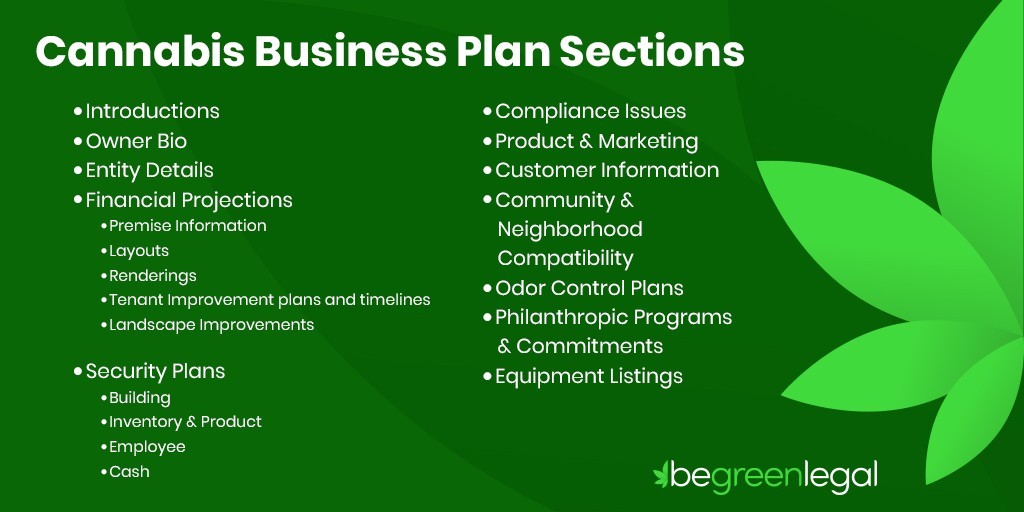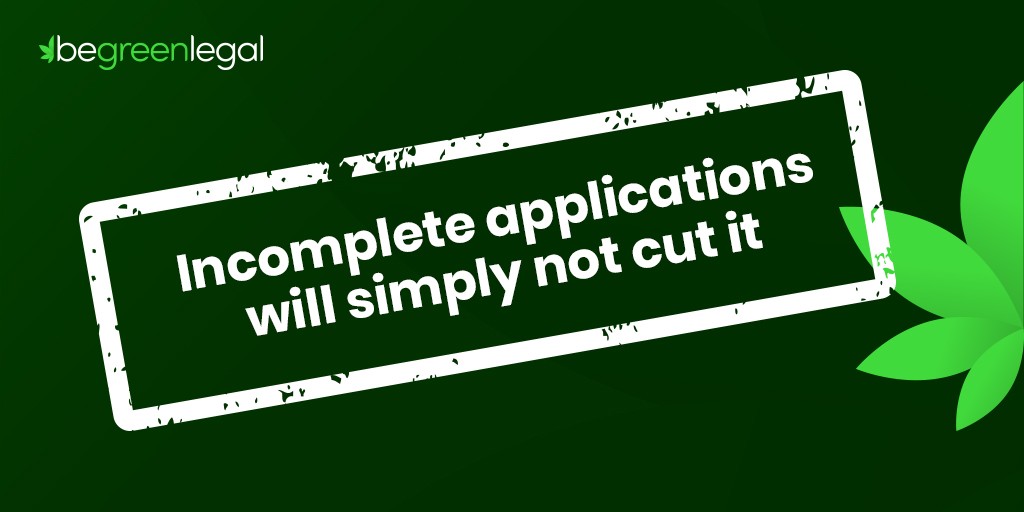If you googled “cannabis business plan” or “cannabis cultivation business plan,” you may have had two distinctly different research goals in mind. This article will discuss these two complementary objectives and provide valuable insight for you regardless of what you were hoping to find.
The 2 Types of Cannabis Business Plans
The Investor Pitch Deck Business Plan
If you are contemplating starting a cannabis business, especially a cultivation operation, which will require millions of dollars and significant real estate assets to launch, you may very likely need to raise funds from investors.
To pull this off you will need more than a good story, you will need to supply a professional business plan and hopefully get a chance to present it to potential partners in person. For the sake of this article, we’ll refer to this plan as a “pitch deck,” even if it is a longer document form, which includes these typical components:
- Size and Type of Opportunity for your Cannabis Cultivation Operation
- Mission of the company
- Strategy as well defined as possible.
- Real Estate details, if any known
- Timeline of Licensing
- Specific Advantages related to your operation
- Leadership Team Bios
- Financial Projections
- Amount of Funds needed
- Offer, including terms
- Use of Funds
Our team has a wealth of experience creating pitch decks for savvy entrepreneurs looking to enter the cannabis space in a wide range of license types, including dynamic vertically integrated strategies, and can certainly help you develop this for your angels.
NOTE: Don’t use Word or PowerPoint templates or edit something you found online. Own the story yourself. The words and flow must be natural and something you 100% believe in or they’ll sense the inauthenticity and tune out. If this is not your specialty, a professional can help you but be sure they’re writing your script.
Local & State Application or RFQ Business Plans
Assuming you have your funding lined up (or at least enough to apply), the other type of “cannabis cultivation business plan” that you may be in search of is the version that typically accompanies an application to either a city, county or state agency to review as part of their approval processes, including those situations in which a few licenses are awarded based on merit scoring.
For an in depth look at Cannabis Cultivation Licensing, be sure to read this Be Green Legal blog post:
Your application business plan often carries the most weight in the scoring, tells a ton about the professionalism of the operation, and is much more technical than the pitch deck as it must address a wide variety of elements. While some items may match the pitch deck in title, the level of detail these agencies expect is vastly more in depth when an application award is at stake.
We regularly produce 100 to 200 page business plans for agencies to consider, which include some of the following sections as examples:
- Introductions
- Owner Bio
- Entity Details
- Financial Projections
- Premise Information
- Layouts
- Renderings
- Tenant Improvement plans and timelines
- Landscape Improvements
- Security Plans
- Building
- Inventory & Product
- Employee
- Cash
- Compliance Issues
- Product & Marketing
- Customer Information
- Community & Neighborhood Compatibility
- Odor Control Plans
- Philanthropic Programs & Commitments
- Equipment Listings
What Makes A Winner?
In some instances, a city may be willing to award just a few cultivation licenses and get over 100 applications if the fee is reasonable enough. So how would your cannabis business plan stand out from the crowd and win either one of these coveted spots or in those areas without caps, get approved as fast and painlessly as possible?
Focus on these items:
1) A Complete Application
The most important thing to confirm when you review your business plan is that every required element is present and addressed in sufficient detail so your document is considered “Complete” by the agency or their consultants. Without this ruling, your application will be turned back or rejected without even considering the merits contained within it.
If you are lucky enough to get a second chance to complete your application, it will most likely be on a very tight deadline. We have been called in on multiple occasions when the Incomplete Notice arrives and had been given just a few weeks to completely redo the application. You don’t want to find yourself in this situation if it can be avoided by careful preparation and professionalism.
2) A Great Team
After the agency determines it to be Complete, the next thing they do is evaluate the people leading the operation looking for all sorts of attributes. Since cannabis cultivation is a pretty sensitive subject still in many jurisdictions, the agencies are looking for past evidence of responsible, professional behavior. Some scoring metrics will award extra points for prior cannabis experience, which can be tricky to include if your background was “less than legal”, but you may also be able to include analogous experience in regulated industries.
You will want to be sure to paint a clear picture for the reviewers of who they will be granting a license, what it will be like to work with them during the application as well as long after. You’ll also want to ensure that they understand the org chart and how responsibilities will be delegated.
3) A Clear Picture
Along the same lines of getting a sense of what your team will be like to work with, the agencies need to be able to visualize the physical operation that you are proposing as part of their community.
You may have obtained design blueprints from your architect or greenhouse vendors, which are a great start. Be sure to include renderings, which are fictional “pictures” of the development so they can be sure to see the layout. You should also link in your security systems and even the workflow of the plans and people that will be working within the facility.
As the saying goes, “confused minds say no”, be sure the review staff can get very comfortable with your vision and knows exactly what you are proposing and what they are being asked to approve.
4) Realistic Timelines & Projections
“When” and “How Much” are the two most common questions you are going to be asked when you develop a cultivation project. Of course, there are several flavors of these questions.
When … will you be selected, licensed, operational, profitable and even sold are good examples and really tough to answer for anybody.
How much … will it cost to apply, get licensed, build out, equip, produce are even harder questions to answer as there are many more interconnected variables.
Writing for an agency that is charged with supporting job growth and tax revenue is tough, as you have to impress upon them that you will be up and running smoothly and fast (if they cooperate) and profitable under certain assumptions, but you don’t want to create unrealistic expectations that come back to haunt all of the parties involved.

NOTE: These predictions are even more stressful in those instances, however rare, when applicants are not required to have control of a building to apply. The bidder that presents “pie in the sky” building concepts and blue sky financials may win the battle and be selected but later lose the war when they can’t produce and their city issues more licenses to make up for their shortfall.
5) Professional & Compliant Supporting Plans
Just like the scoreboard at a football game is a reflection of each team’s success drawing up and executing their offensive and defensive game plans, whether you are awarded a cannabis cultivation license will most likely depending on the quality of your support plans, namely Security, Odor Control, Environmental Impact and Community plans.
Cities are not judging the subjective quality of the cannabis you will produce. They are evaluating whether you are aware of and able to grow within the scope of the regulations they are charged with enforcing.
Your plans must demonstrate that you have taken the time to understand and build the regulations, both in written form and within the spirit. You need to be specific and complete to illustrate your comprehension and commitment to your community.
Need Help?
Now that we have shared these pillars of a winning cannabis business plan for cultivation, you may want some more specific help. Our team is happy to jump in and help compose, edit , review and even present your business plan to city, county and state agencies.









